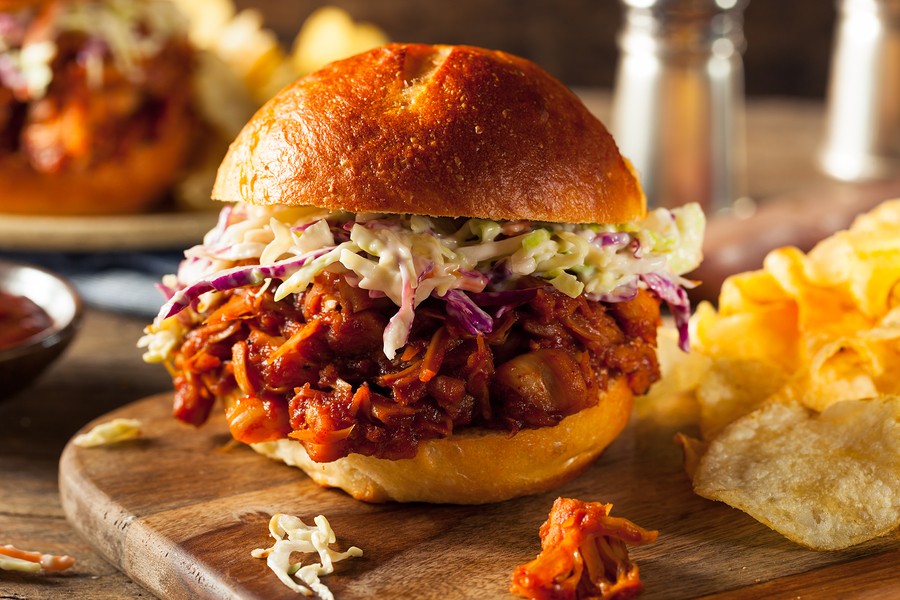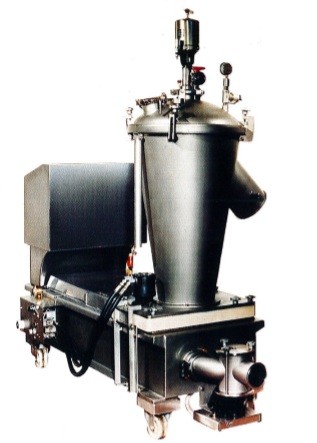A vegetarian diet is one that excludes all animal meats, such as chicken or fish. A vegan diet excludes all animal meats and animal by-products, such as eggs or dairy.
As of June 2017, about 6% of the U.S. population claimed to be vegan. Vegan and vegetarian diets are increasing in popularity, and consumers are demanding more plant-based food options when they grocery shop and go out to eat.
The rising popularity of vegan and vegetarian food has caused a shift in the food industry. According to the Plant Based Foods Association (PBFA), the vegan retail food industry’s worth grew by 11.4% in March 2020 and hit a staggering $5 billion.
The food industry is delivering on these demands with more plant-based options on grocery store shelves and restaurant menus. Learning more about how the food industry is accommodating vegan consumers and what it means for the future of these products will help you understand how this trend impacts both retailers and restaurants alike.
Why Are Consumers Going Vegan?
There are many reasons consumers have begun to switch to vegan diets. While the popularity of this trend is obvious in the rising worth of the vegan industry, consumers may have different reasons for making this diet change.
The 2019 Global Vegan Survey found that 68.1% of participants changed to a vegan diet to take a stand against the mistreatment of animals. They claimed ethics and concerns about animal welfare as their main reason for the diet change.
Of the participants polled, 17.4% claimed they switched their diet for health reasons. These participants may want to be more fit, manage chronic health conditions, or increase the number of fruits and vegetables they consume to stay healthy.
About 9.7% of survey participants claimed they were motivated by the environment when switching to a plant-based diet, while 4.8% reported other reasons for making this change. These other reasons may include religious motivation or personal reasons.
How Is the Food Industry Accommodating Vegan Consumers?
Food industry professionals throughout the supply chain have shifted their focus and products to meet this new vegan demand. From restaurants to grocery stores to food manufacturers, products, ingredients, and processes have been altered so they can better cater to vegan consumers.
Restaurants
To meet consumers’ changing desires, restaurants must enhance vegan options on their menus. From fancy dine-in establishments to casual fast-food restaurants, plant-based dishes and options are being added to pique consumers’ interests and win their business.
Restaurants that want to cater to vegan patrons may find a challenge in the number of additional ingredients they’ll need to stock and menu space they must reserve. One of the most popular dishes many restaurants add to their menus is the plant-based burger. This is an easy way to offer a vegan option because most restaurants can simply outsource this burger from a food manufacturer.
In March 2020, it was estimated that the plant-based meat industry is worth $939 million due to its rising demand in restaurants around the world.
Grocery Stores
The plant-based food retail market continues to grow as the demand for vegan products, including frozen meals and independent ingredients, also rises. In 2019, consumers in the U.S. spent $1.9 billion on plant-based milks alone, such as almond or coconut milk.
Some experts believe the availability and ease-of-use of these plant-based milks may be what intrigues consumers to try other plant-based products. According to Caroline Bushnell from The Good Food Institute “As they’ve gotten familiar with almond milk and coconut milk, they’re saying ‘Maybe I will try plant-based cheese.’”
Retailers attempt to offer more plant-based products to satisfy consumers’ curiosities and shift toward vegan diets. Vegans also want convenience when it comes to food preparation and about 2% of the frozen meat section consists of plant-based meats.
In 2019 in the United Kingdom, the term “vegan recipes” was searched online over 90,000 times. With the increasing popularity of vegan meal preparation at home, it’s no wonder grocery stores are demanding more plant-based options from food manufacturers.
Food Manufacturing
Food manufacturers feel the push of this demand for plant-based foods from both consumers and retailers alike. While these manufacturers focus on obvious items, such as non-dairy kinds of milk and plant-based meats, they’re also working on innovations to attract vegans to new products.
For example, in addition to meat alternatives, food manufacturers are also focusing on plant-based seafood alternatives. In 2018, Atlantic Natural Foods began offering TUNO, a tuna alternative made from soy and yeast. In January 2020, Good Catch Foods was established and focuses solely on plant-based seafood. Large companies like Impossible Foods and Nestle have also started creating their own fish alternatives to keep up with the growing vegan industry.
Food manufacturers that consistently create innovative products that taste good are bound to succeed. According to a 2018 survey, the taste is the number one reason vegans eat plant-based products. Diet or environmental reasons also ranked high but 52% of survey respondents chose taste as their reason for eating vegan food. Manufacturers that take the time to create great-tasting products will find more success in this growing industry.
When food manufacturers focus on inventing new products, they may need to invest in new equipment, such as food slicers or even dedicated grills and ovens to avoid possible cross-contamination with meat-processing equipment. To increase their bottom line, manufacturers must also learn how to automate their food production processes to meet growing demand. It’s also important for food manufacturers to pay attention to supply chain management trends in the food industry to ensure their production is cost-effective.
What Does This Mean for Animal-Based Products?
Although veganism seems to be taking over, animal-based products are still in demand. From 2016 to 2019, the demand for poultry continued to slowly rise, as did the demand for sheep. Pork, beef, and veal demand declined slightly from 2018 to 2019.
Farmers who focus on dairy products, including milk and cheese, may see a slow in demand due to increased prices. For example, the cost of butter is expected to rise about 33 cents per pound by 2028, and cheese prices may rise by about 10 cents by the end of 2020. These price increases may be due to a slowing production of milk and increases in the costs to maintain agriculture.
Animal-based product manufacturers and farmers may benefit from focusing on organic products. Organic product sales in the U.S. grew by 4.6% in 2019.
Although these products are often more expensive, Americans who do eat meat and animal products are more likely to buy organic. A study found that most Americans are interested in organic foods because they’re more healthy and don’t contain chemicals, hormones, or pesticides.
As more Americans are concerned with their health and environment, the vegan diet trend continues to grow. If restaurants, grocery stores, and food manufacturers continue to innovate and leave room for plant-based products, they’ll find success in embracing this growing trend.


















